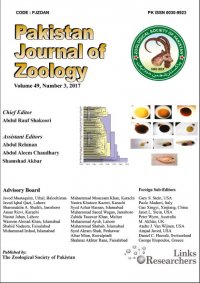Co-Stimulatory Markers OX40 and OX40L in Blood and Saliva of Oral Squamous Cell Carcinoma: A Comparative Study
Co-Stimulatory Markers OX40 and OX40L in Blood and Saliva of Oral Squamous Cell Carcinoma: A Comparative Study
Aliya Irshad Sani1, Shumaila Usman2*, Zile Rubab1, Sufyan Ahmed3, Sana Iqbal3 and Zehra Ahmed4
ABSTRACT
The immunotherapy has emerged as a treatment modality to treat recurrent and advanced tumors. Many immune markers are being evaluated in Oral squamous cell carcinoma (OSCC) including costimulatory molecules OX40 (Tumor necrosis factor receptor superfamily, member 4, TNFSRF4) and OX40L (tumor necrosis factor superfamily, member 4; TNFSF4). They function to potentiate T cells function to accentuate anti-tumor activity. The results of OX40 and OX40L in cancer immunotherapy are still limited and most of the studies have evaluated their expression in tumor biopsies. In this study we aimed to find out gene expression of costimulatory molecules in naïve oral squamous cell carcinoma patients in saliva and blood as noninvasive biological samples by qPCR. The results revealed significant difference between the cycle threshold (Ct) values in the saliva and blood of OX40 (p value=<0.001) and OX40L (p value=<0.001) in OSCC patients. The fold change overexpression in blood and saliva is also compared in relation to histological gradings and clinical staging. Based on our observations we suggest these particular markers can be evaluated in blood and saliva less invasively compared to tumor biopsies.
To share on other social networks, click on any share button. What are these?









